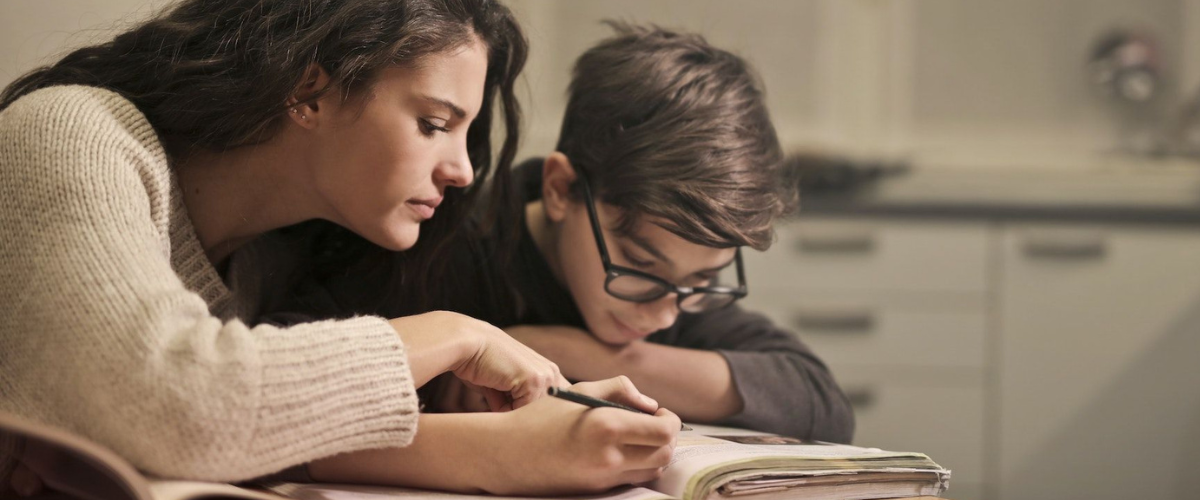In today’s world, kids have an unprecedented amount of information to navigate. Helping them develop critical thinking skills to make sense of the myriad of information can help set them up for success in school and beyond. Critical thinking is one of the National Education Association’s “Four Cs” for 21st-century teaching—the four most important skills for K-12 education in a global society.
If it’s been a while since you were in school, you might have been expecting four core subjects to be the most important skills—that’s the classic list of math, science, English, and history.
But, the modern lens on education sees those as merely content areas and the Four Cs—critical thinking, creativity, communication, and collaboration—as the essential skills that can help a learner unlock understanding of any content area, problem, or decision they encounter. In this article, we focus on critical thinking.
What is critical thinking?
Simply put, the Stanford Encyclopedia of Philosophy defines the term critical thinking as, “careful thinking, directed to a goal.” “Careful thinking” is the intellectual process we use to analyze and evaluate an idea, and “directed to a goal” means that we apply this process with the goal to make a judgment or decision.
The critical thinking process helps us take an idea and examine it to make sure we’re being told the whole story. It also helps us evaluate the idea to make sure it’s not just the power, influence, or storytelling skills of the person with the idea tricking us into believing something that isn’t really a logical idea worthy of our belief.
The origins of critical thinking
Critical thinking is an ancient tradition rooted in Greek history and first developed by the philosopher Socrates, which is why you’ll often hear critical thinking associated with the Socratic method. The Socratic method sounds complicated, but it’s as simple as asking questions in order to break through the facade of an idea.
The concepts and principles of the Socratic method are all aimed at asking questions to expose contradiction, engage in discussion, and develop the ability to analyze ideas that we may have typically accepted as facts.
Socrates asked his students questions that probed the evidence and reasoning behind an idea, with the ultimate goal of helping students determine if the idea is worth believing in. It’s a thought process that challenges ideas and builds independent thinkers who enjoy solving problems and drawing conclusions.
Pick out an online critical thinking class for your kids.
Critical thinking skills vs. mindset
Critical thinking is a skill and experienced critical thinkers also develop a mindset. Skills are what critical thinkers do; mindset is the attitude they hold. The critical thinker attitude is open-minded, skeptical, curious, reflective, self-aware, truth-seeking, fair, unbiased, and rational.
As your child practices critical thinking skills, they will develop the mindset, which they can apply in a number of different environments: higher education, career, parenting their own children, and more.
In the NEA’s Guide to the Four Cs, educational researchers break down critical thinking skills into core behaviors to show what it looks like to be a critical thinker. These behaviors make for engaged and inquisitive college students, great employees (and entrepreneurs!), and curious lifelong learners. According to the NEA, critical thinkers:
FIRST MONTH FREE!
Get support that meets kids where they are.
Learn moreThink using systems.
- By systematically breaking down complex problems and ideas into their parts.
- By analyzing big ideas to determine how each part is contributing to the whole picture.
Evaluate, judge, and decide.
- By considering other points of view.
- By interpreting evidence and information and drawing the best conclusion.
- By analyzing and evaluating arguments.
- By reflecting on their judgments and decisions.
Solve problems.
- By asking questions that expose better solutions.
- By not fearing new and unfamiliar problems.
How to practice critical thinking
The critical thinking mindset will come with time, practice, and the development of critical thinking skills. To help your children improve critical thinking skills, practice asking a series of questions aimed at getting to the “why” behind the idea or the why behind the decision your child has made. Your questions should:
- Ask how and why (rather than what). Why do you think that?
- Ask for a defense with evidence or proof. How do you know that?
- Consider other perspectives. What do you think so and so would think?
Don’t be afraid to follow this formula—it’s simple but effective and structure is a great way to ease kids into a new way of thinking. Knowing what question comes next does not lessen the quality of their response and eventually, they will internalize these questions and start asking themselves all on their own.
How parents can model critical thinking
Good critical thinking skills start with modeling for your kids. If you improve your skills with a little bit of practice and self-awareness, you’ll see the effects in the way your kids begin to approach problem-solving.
Remember, you don’t need subject matter expertise to model critical thinking. If you don’t understand what your kid is learning in advanced math, you can still ask how and why. Listening to them and encouraging analysis is the important skill here.
Tips for modeling critical thinking
- Give reasons for your own decisions (avoid “just because”). When you are evaluating a purchase, let your child in on the process and show them your reasoning.
- Talk about the internet and social media. Discuss how to vet information on the internet and make sure you are getting the full story. If your child is older, talk about influence and power.
- Ask questions! If your child is older, try debating. This is a great way to practice the evidence element of critical thinking.
- Don’t make reasoning or thinking critically only about school content areas. Discuss a topic they are passionate about—pop culture, politics, or sports. This helps model that critical thinking isn’t only an academic process, it’s a lifelong skill.
Learn critical thinking skills with Outschool
If you want to help your kids develop the skills they need, you've come to the right place. At Outschool kids can learn anything in a convenient, affordable, live online format. Try classes like speech and debate, critical thinking, logic, career readiness, and life skills.
*This article was originally published in July 2020 and was updated in November 2022.






.svg)
.svg)







